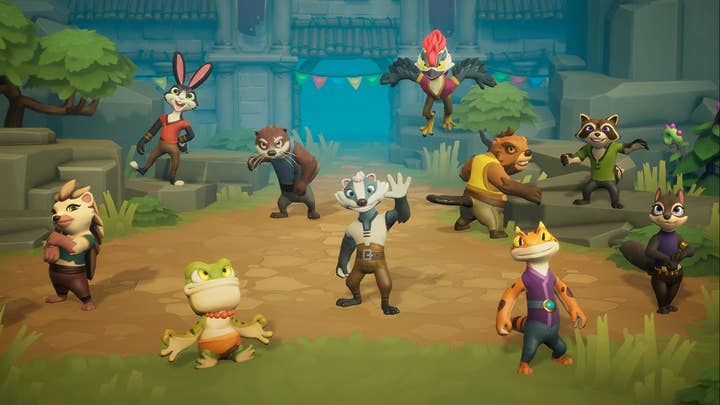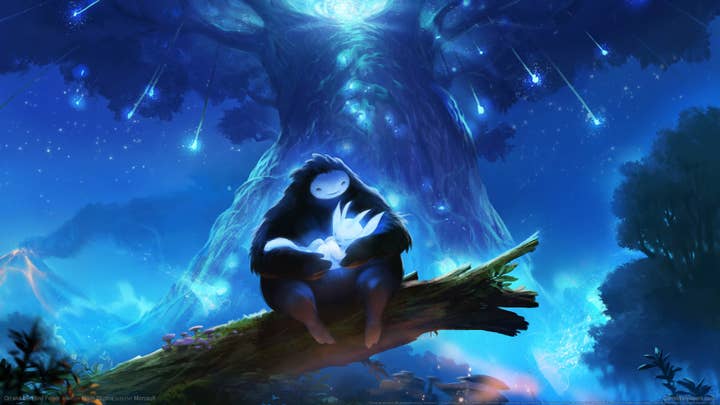The future for platform holders is cooperation, not just competition | Opinion
Companies like Sony and Microsoft will always seek a competitive advantage, but the clear lines of the console wars are all but gone
When an industry changes -- even quite radically -- it can be hard to pinpoint the moment that the shift began. There are obvious candidates in some cases, like the original iPhone keynote kickstarting the smartphone era, but more often a sea change in an industry's business model, dominant paradigms and underlying assumptions comes about through a series of steps which only look truly pivotal in hindsight -- while some of the really big announcements and flashy keynotes that seem terribly important at the time turn out to be little more than distractions and tangents from the real direction of events.
In the category of small events that might actually signal major changes, I'd like to nominate a couple of announcements over the past week or two: Microsoft's announcement that Xbox Game Studios will be publishing Moon Studios' Ori and the Blind Forest on Nintendo's Switch in September, and Sony's announcement that it will be publishing Robot Entertainment's ReadySet Heroes on PC via the Epic Games Store at the start of October.
"Sony sees a future where its relationship with Microsoft could be as much co-dependent as competitive"
Taken individually, a platform holder deciding that it's going to publish something on a rival platform isn't an earth-shaking decision; it's happened before, after all. But there's context here that's important; some of it old news, like Microsoft's decision to keep Minecraft a massively cross-platform affair even after it acquired the game, and some of it far more recent, like Shawn Layden's comments about Sony being open to the notion of putting major first-party titles on PC.
The wind is starting to shift in an interesting direction here, and it has major implications for the future of the industry's competitive landscape. Microsoft is taking the lead in this dance to a large extent, not least because it arguably has most to gain from its outcome, but Sony's understanding of how the terrain is changing clearly matches that of its supposed rival. It sees a future where its relationship with Microsoft could be as much co-dependent as competitive, and one where the meaning of the word "platform holder" changes dramatically, to the point where the line between that and "publisher" becomes inherently blurred.
In the background of all of this competitive shuffling, of course, is the looming spectre of game streaming -- most notably of Google's Stadia service, which once again had a flurry of announcements and slightly meaningless live demonstrations over the past week. Cards on the table; I think Stadia is driving a lot of reactionary positioning by other players in the industry simply because of Google's size and the amount of money it has to throw at a project like this.
"I suspect that history will come to see Google Stadia as one of the aforementioned distracting tangents"
But I suspect that history will come to see it as one of the aforementioned distracting tangents. Too early, too unfocused, lacking a real USP, and coming from a company with too short an attention span to really make it work in the long run. Stadia's impact is ultimately going to be more to do with how other companies respond to it than any real success of its own. (File that under "quotes that I'm sure definitely won't be thrown back at me on Twitter in five years, assuming Twitter exists in five years".)
Even if Stadia fails to seriously undermine the industry's existing structures, though, it still essentially casts a bright light on a truth that will inevitably change those structures -- namely that physical hardware is becoming more commoditised by the minute. Perhaps not to the extent that we can wave goodbye to it forever -- data caps, contended broadband connections, rural connectivity woes and so on still make that a bit of a pipe dream -- but certainly to the extent that the era of the truly unique console under your TV is largely over.

Good design and clever selection of components are still vital skills, but the reality is that there are only one or two vendors for most of the key components that go into consoles. You can pick Intel or AMD for your processor, AMD or Nvidia for your graphics chip, your RAM and storage are basically down to Samsung and Micron, etc. Stadia and its ilk -- including the near-inevitable Stadia-esque services from the platform holders themselves -- essentially expose the reality of how consistent modern hardware is. The end of the platform wars is in sight simply because all the platforms are basically the same.
"Fortunes have been lost time and again by companies leaping too early towards a future that hadn't quite solidified"
Or rather, all the hardware platforms are the same, with "hardware" being an important qualifier here. What's becoming important isn't the physical platform, but the "platform" as a broader concept; the platform as a service, not just in terms of game streaming (whether it remains a niche or not) but in terms of the software and services that make up platforms like Xbox Live, PlayStation Network, Steam, the Epic Games Store, and so on. We're about to go through a strange and potentially tumultuous transition period, where we move from the biggest advantage being earned by having the most exclusive games on your hardware platform, to the advantage of exclusive software being powerfully moderated by your software platform's ability to make those games available across the widest variety of hardware platforms.
This isn't dissimilar to what happened in video. We went from format consortiums trying to secure the most software for their physical discs or tapes, to video platforms trying to secure the widest distribution for their streaming services (though of course, exclusives didn't stop being important -- they're just important for different reasons now). The same thing is going to happen in games, and it's going to be more drawn out and more tumultuous. But the end result is definitely going to be some kind of world where "PlayStation" and "Xbox" become services you subscribe to and access on whatever hardware you happen to have, rather than (or perhaps alongside) physical devices alone.
Both Microsoft and Sony recognise the opportunity that presents, even if the challenges along the way are daunting. If Microsoft is out in front in terms of its promotion of that shift, it's because it sees itself as being the service provider behind the curtain for all sorts of companies that would otherwise be competitors. And thus, it clearly has most to gain from this shift in how the industry works.
Feeling our way towards that future is going to be a three steps forward, two steps back kind of progression, because there's still inherent value in the goodwill and loyalty that consumers have to physical console hardware. That value isn't going to go away quickly, and could easily last through another full hardware cycle -- five to seven years, perhaps longer. The future isn't here yet, and fortunes have been lost time and again by companies leaping too early towards a future that hadn't quite solidified.
That's why Microsoft had to follow up its Ori launch on Switch with confirmation that its other exclusives are still exclusive. There's an audience that still demands that, and it's a business reality that it's too early to go all-in on this approach. We'll hit a point in the future where it will make nothing but sense for Halo to launch in a manner that lets Xbox subscribers log in and play it on their PlayStations - but we're not there yet. When it does happen, though, perhaps we'll look back to little moments like Ori launching on Switch, or Sony musing over putting PlayStation exclusives on PC, and see them as key turning points along the way.









